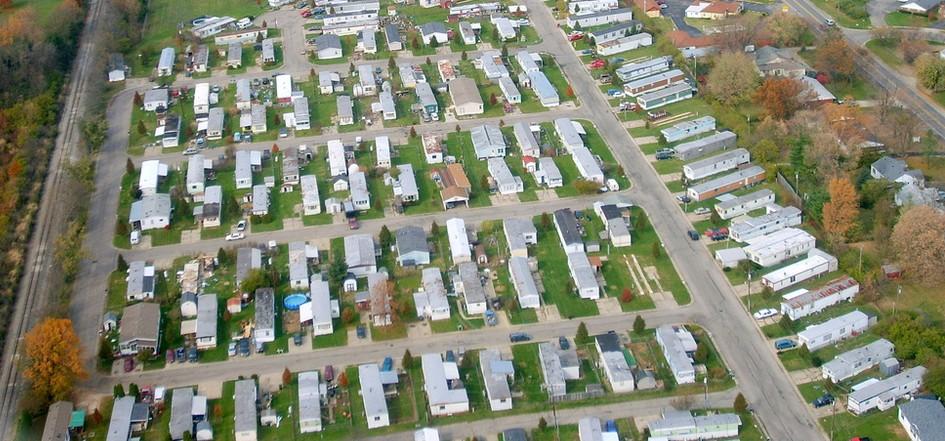
cross-posted from Washington State Standard
A mobile home park in Moses Lake is up for sale and a new state law assures residents a shot at buying the property.
In the past they might’ve never known it was on the market until after it was sold.
Owners of North Pointe notified residents on July 17 that they are looking to sell the 25-space mobile home park.
This started the clock on a process providing those living there and eligible organizations approved by the state Department of Commerce an opportunity to compete with other potential buyers.
That chance is etched into a law that took effect Sunday and is intended to help preserve this stock of affordable housing.
Until now, parks did not have to be sold on the open market, explained Victoria O’Banion, marketing and acquisitions specialist with the Northwest Cooperative Development Center. She played a central role in drafting the language of the law.
What seems like a small change isn’t.
On Friday, July 21, residents of a mobile home park for seniors in Mount Vernon, learned the park had been sold, she said. Now, she said, the new owners could raise rates and some of the seniors could find themselves “economically evicted.”
“Residents of North Pointe have a fighting chance to own and operate their own park,” she said. Those in Mount Vernon did not have the same opportunity, she said.
In Washington, there are roughly 1,200 registered mobile home parks and manufactured housing communities housing an estimated 65,000 families.
Each year brings closures. There’s been four so far this year affecting 28 households. A shuttering of a senior community in Winlock accounted for nearly half of the total. In 2022, eight mobile home parks closed, forcing 133 families to relocate.
The law gives mobile home park residents 70 days to tell the owners of their interest in acquiring the property and to form a tenant group, or align with an eligible organization, to pursue the purchase.
They’ll be able to get information on operation and maintenance costs of the park. From there they can make an offer and the owners have 10 days to accept, reject or counter. If residents decide not to make an offer, an eligible organization can proceed making one on its own.
If an offer is rejected, the owner must explain in writing why it was turned down and what terms and conditions would be acceptable, according to the law. Owners can accept and consider offers from other potential buyers.
O’Banion said she’s been involved in nine sales of mobile home parks to residents in the last three-plus years. Every time she makes a market-rate offer.
There are now 24 resident-owned communities in Washington and roughly 300 across the country, she said.
There are many potential partners for residents. These are “eligible organizations” defined under the law as a community land trust, resident nonprofit cooperative, local government, local housing authority, nonprofit community or neighborhood-based organization, federally recognized Indian tribe in Washington and a regional or statewide nonprofit housing assistance organization.
The Department of Commerce must compile a registry of these organizations. Those on it will receive notice when any mobile home park or manufactured housing community in Washington goes up for sale. It is incumbent upon the individual entity to get onto the registry.
In addition, the law requires mobile home park owners give residents two-year notice if they intend to close, rather than sell, the park. The old law was one year.
Owners can reduce the length of time for closure notice to 18 months if they provide at least $15,000 in relocation assistance for those in a multi-section home or at least $10,000 for a single section home.
They can trim it further to a year if, in addition to the assistance, they pay tenants at least 50% of the assessed value of their home or $5,000, whichever is greater.
Shared under a CC BY-NC-ND 4.0 license.

Add new comment